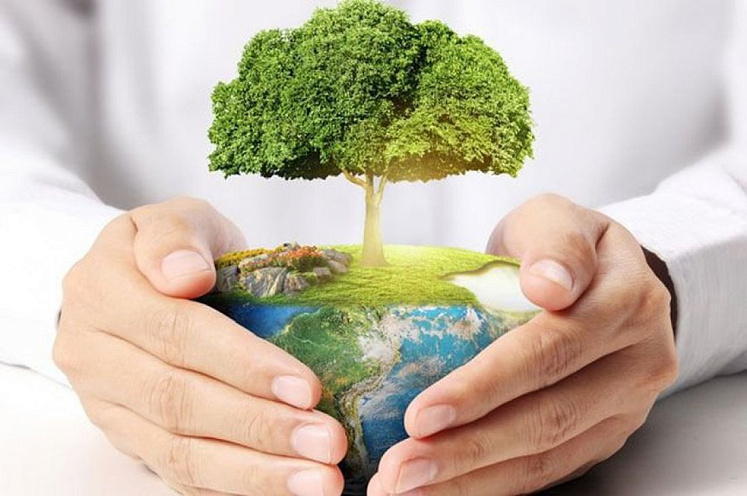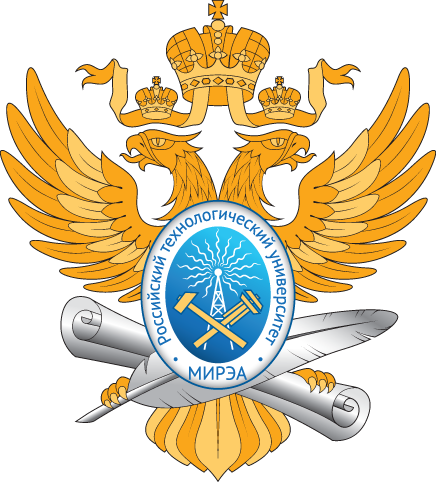20.03.01 Technosphere safety
The professional activity of the program alumni includes human safety in the modern world and how to ensure it, the formation of comfortable technosphere for life and activity, minimization of the technogenic impact on the environment, preserving human life and health through the use of modern technical means, as well as the development of control and forecasting methods. The professional activity of the alumni of the Technosphere Safety training program concentrates on the human being and his environment, risk assessment in this sphere, and means of protecting man and nature.
In the process of training, future professionals acquire the knowledge and skills that allow to achieve maximum environmental safety of human economic activity and reduce the risks of the negative anthropogenic impact on the environment. The program’s specific features are its complexity and versatility.
In the process of training, future professionals acquire the knowledge and skills that allow to achieve maximum environmental safety of human economic activity and reduce the risks of the negative anthropogenic impact on the environment. The program’s specific features are its complexity and versatility.
Level of education:
Bachelor’s degree
Form of training:
Full-time (day department)
Venue of training:
Moscow
Entrance exams:
— Mathematics (major)
— Russian language
— Chemistry / Physics
— Russian language
— Chemistry / Physics
Programs, specializations:
Environmental Engineering

Graduates trained in the Environmental Engineering bachelor's program are engaged in the development, design, commissioning, operation and improvement of eco-friendly equipment and technologies, organization and management of environmental protection activities at enterprises, and product certification. Their professional interest lies in expert, supervisory, supervisory and auditing activities.
Alumni can be employed as
- environmental engineers
- specialist in the operation of water treatment facilities
- specialists in the operation of water treatment facilities
- waste management specialists (by industry)
- labor protection engineers
- inspectors of environmental protection
Program subjects
- Design in the field of technosphere safety
- Technologies for protecting the atmosphere
- Environmental management
- Hydrosphere protection technologies
- Theoretical foundations of environmental protection
- Automated environmental protection systems
- Environmental and economic analysis of technologies
- Handling production and consumption waste
- Supervision and control in the field of security
- Fundamentals of fire and explosion safety
- Industrial ecology
- Technosphere safety management
- Safety of production and the basics of industrial ecology
- Chemistry of the environment
- Environmental and economic risks of industrial safety
- Environmental Impact Assessment and Environmental Expertise
- Environmental mapping
- Patenting in environmental design
- Innovation management in the field of environmental protection
Department of Environmental and Industrial Safety
- Educational Activity
-
Institutes
- Institute of Information Technologies
-
Institute of Artificial Intelligence
- About the Institute
- Institute Administration
- History of the Institute
-
Training programs
- Bachelor's Degree Programs
-
Master's Degree Programs
- 01.04.02 Applied mathematics and information science
- 09.04.01. Informatics and computer engineering
- 12.04.04 Biotechnical systems and technologies
- 15.04.04 Automation of technological processes and production
- 15.04.06 Mechatronics and robotics
- 27.04.03 System analysis and management
- 27.04.04 Engineering system control
- Infrastructure
- Alumni
- Contacts
- Institute for Cybersecurity and Digital Technologies
-
Institute for Advanced Technologies and Industrial Programming
- About the Institute
- Institute Administration
- History of the Institute
-
Training programs
-
Bachelor's Degree Programs
- 09.03.02 Information systems and technologies
- 11.03.04 Electronics and nanoelectronics
- 12.03.05 Laser technology and laser techniques
- 15.03.01 Mechanical engineering
- 22.03.01 Materials science and technology
- 27.03.01 Standardization and metrology
- 28.03.01 Nanotechnology and microsystems engineering
- 29.03.04 Decorative material working techniques
- 54.03.01 Graphic design
-
Master's Degree Programs
- 09.04.02. Information systems and technologies
- 11.04.04 Electronics and nanoelectronics
- 12.04.02 Optical engineering
- 15.04.01 Mechanical engineering
- 22.04.01 Materials science and technology
- 27.04.01 Standardization and metrology
- 29.04.04 Decorative material working techniques
- 54.04.01 Graphic design
-
Bachelor's Degree Programs
- Infrastructure
- Alumni
- Contacts
- Institute of Radio Electronics and Informatics
- Institute of Management Technologies
- Lomonosov Institute of Fine Chemical Technologies
- Institute of International Education
-
Mega-Laboratories
- Motion Capture Laboratory
- Immersive Technologies Laboratory
- Laboratory for the Development and Transfer of Microfluidic Technologies (DTMT)
- Cell Technologies Megalaboratory operating on the basis of the Department of Chemistry and Technology of Biologically Active Compounds, Medical and Organic Chemistry named after N.A. Preobrazhensky
- General Biotechnology Megalaboratory
- Industry 4.0: Digital Robotized Production center
- Laboratory of Intelligent Autonomous and Multi-Agent Robotic Systems
- Research and Educational Center for Biosynthesis, Isolation and Purification of Monoclonal Antibodies (Generium)
- Rare and Precious Metals Research and Technological Center operating on the basis of the Department of Chemistry and Technology of Rare Elements named after K.A. Bolshakov
- Laboratory of Analytic, Modeling, Design and Digital Prototyping Technologies
- Import Substitution of Information Technologies Educational and scientific testing complex
- Smart Production Systems Educational and Scientific Center
- Elastomers. Thermoplastics. Technologies Educational and Research Center operating on the basis of the Department of Chemistry and Technology of Elastomer Processing named after F.F. Koshelev
- Catalytic and Mass Exchange Processes center
- Center of Innovative Technologies in Microelectronics
- Center for Cybersports Robotics
- Mobile Robotics University Laboratory
- Radio electronic Technologies Megalaboratory
- Departmental Situation Center of the Ministry of Science and Higher Education of the Russian Federation for monitoring the sphere of education and science
- Scientific and Educational Center for Medical Radiology and Dosimetry
- Laboratory of Geographic Information Systems and Technologies
- Educational and Research Center for Space Monitoring ("CosMoCenter")
- Additive Polymer Technologies Center
- Cyber Threat Research Megalaboratory
- Digital Center of Rosatom State Corporation
- Laser Technologies Megalaboratory
- Mathematical Modeling and Artificial Intelligence Megalaboratory
- Megalaboratory of Digital and Additive Technologies in Mechanical Engineering
- Nanomaterials and Nanostructures Diagnostics Center
- Techno-coworking
- TESLA Educational and Research Center
- Bachelor's Degree Programs
- Master's Degree Programs
- Additional Education Programs
- Physical Education and Sports
© 2026 MIREA - Russian Technological University




